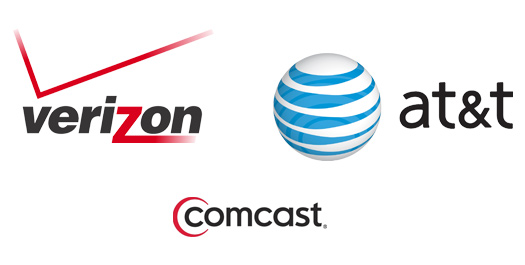Republicans are moving forward with a bill that could eliminate the Federal Communications Commission’s authority to protect consumers from overpriced and unreasonable broadband prices. Democrats warn that the bill could help Internet service providers (ISPs) execute unfair data caps.

The FCC reclassified broadband as a common carrier service to inflict net neutrality rules, but it refused to impose standard rate regulation to prevent telecommunications providers from raising prices without permission. The reclassification does allow customers to protest about prices, with the FCC judging whether a price or practice is unjust or unreasonable.
Titled the “No Rate Regulation of Broadband Internet Access Act,” the bill forbids the FCC from regulating rates charged for Internet, a promise made by President Obama and FCC Chairman Wheeler that Republicans are working to put into a law. It won’t require ISPs to face the rate-of-return regulation that is applied to telephone services, and passing such a bill would prevent future FCC chairpersons from imputing a different policy.
Democrats and consumer advocates are working to prevent the bill from passing to avoid ISPs from implementing discriminatory data caps or harmful practices. The FCC’s net neutrality order doesn’t in fact ban data caps, but it does grant the commission the right to decide case-by-case whether or not a cap prevents customers from using Internet services or prevents content providers from reaching consumers. Those opposing the bill note that the FCC’s vital role is to ensure that the public gets a fair deal and that one service provider does not have a monopoly over a certain area.
“The commission has an important role to play in consumer protection, which includes the billing practices of the nation’s broadband providers,” said Congresswoman Anna Eshoo.
Comcast CEO Brian Roberts said that consumers should be charged for the Internet in the same fashion they would be charged for electricity – “the more bits you use, the more bits you pay.”
The FCC has granted temporary exemption to small businesses with 100,000 subscribers or less that lasts until December 15, 2016. The proposed legislation would permanently exempt small providers, but the bill would expand its definition to include any provider with fewer than 1,500 employees or 500,000 subscribers.
Republicans say the bill is essential to “provide certainty and regulatory relief to small providers who lack the resources to comply with the enhanced disclosure requirements.”
And while Congress fights the FCC on their behalf, broadband companies themselves are suing the FCC to overturn the net neutrality order.
Source: Ars Technica
Advertisement
Learn more about Electronic Products Magazine





